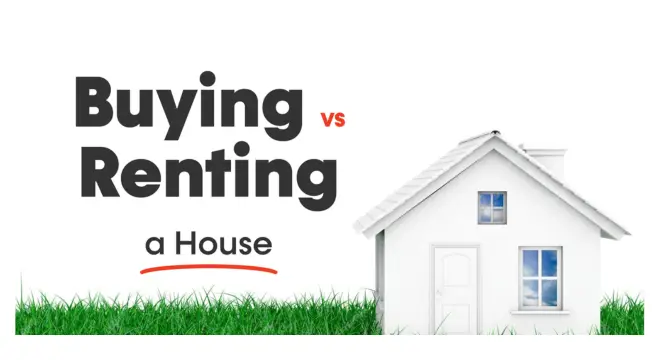What to Ask a Real Estate Agent When Selling Your House (10 Must-Know Questions)
If you’re thinking of selling your home, I want you to pause for a second. Not to doubt yourself—but to ask better questions. Because the truth is, your real estate agent will make or break your entire selling experience.
I’ve seen sellers walk into meetings totally unprepared, relying on gut feelings or shiny sales pitches. And I’ve also seen the smart ones—the ones who ask sharp, practical questions. They don’t just “hope” things go well. They steer the process from the start.
This guide is for you if you want to be that kind of seller.
I’m not going to hand you a fluffy list of obvious questions. I’m giving you the ones that actually reveal how good—or average—your agent really is. From pricing logic to hidden contract traps, marketing strategies to negotiation habits, every question below is designed to protect your money, your time, and your sanity.
Whether you’re interviewing your first agent or narrowing down your final two, these 10 questions will help you spot the pros—and avoid the passive talkers.
Let’s get into it.
How did you arrive at your suggested list price?
This is the first question I always tell sellers to ask—because it reveals how seriously the agent has done their homework.
A lot of agents will throw out a price that sounds good just to win your listing. It’s called “buying the listing,” and it happens more often than most sellers realize. You get excited about a high number, sign the contract, and two weeks later, they start pushing for price cuts.
A good agent will never play that game.
Instead, they’ll walk you through a Comparative Market Analysis (CMA)—showing you recent sales, current competition, and key adjustments they’ve made for things like your upgrades, layout, or lot size. It should feel like a thoughtful breakdown, not guesswork.
You can ask:
- “What comps did you base this price on?”
- “How did you adjust for square footage or condition?”
- “Would you price it differently if it were your own home?”
If they struggle to explain or dodge the question, take it seriously. That usually means they’re either inexperienced or hoping to lock you in before delivering bad news.
Also ask, “What’s your plan if we don’t get any offers in the first 10 days?” Agents with a real strategy will talk about timing, showings, and pricing benchmarks. The rest will just blame the market.
Because pricing isn’t just about numbers—it’s about trust, transparency, and whether this agent is trying to sell your home, or just sell you on signing the agreement.
What’s your average list-to-sale price ratio and days on market?

This is where the numbers talk.
Any agent can promise they’ll “get you top dollar,” but very few can actually prove it. That’s why this question matters—it forces them to show you what they’ve actually delivered, not just what they say they’ll do.
Start by asking for their average list-to-sale price ratio. If they consistently sell homes at or above asking, that’s a strong sign they know how to price, market, and negotiate. If they’re regularly dropping prices or discounting to close deals, that’s something you need to know upfront.
Then ask about average days on market. You want to see how long their listings typically sit before selling—and how that compares to the local average.
If their numbers are noticeably better than the market, you’re probably dealing with someone sharp. But if their answers are vague or defensive, press deeper. You’re not being rude—you’re protecting your biggest asset.
What the numbers mean:
- A strong agent typically has a list-to-sale ratio above 97%.
- Homes priced right sell faster—often in under 30 days, depending on your market.
- If your local average is 40 days, and their listings sit for 65+, ask why.
According to NAR market data, the national average days on market was 29 days for properly priced homes in 2024.
It keeps the conversation grounded in facts, not fluff. If you’re trusting someone with a six- or seven-figure sale, you deserve to know what they’ve actually achieved—not what they hope to do for you.
How many homes have you sold in my neighborhood or price range in the past 12 months?
This is where you separate local experts from generalists.

A lot of agents will show you a long list of past sales—but how many of those were in your zip code, your price bracket, or for homes similar to yours?
It matters more than you think.
Local experience means they know how buyers behave in your area. They’ll know which features actually matter on your street, how to price competitively, and what kind of marketing works best. It’s not just about knowing the city—it’s about knowing the block.
You can ask follow-up questions like:
- “Have you sold any homes within a 1-mile radius recently?”
- “What price points do you usually work with?”
- “What’s different about marketing in this part of town?”
Also ask to see specific listings they’ve closed in your area. Dates, prices, outcomes. A confident agent won’t hesitate.
Red flag to watch for:
If they shift the conversation to their brokerage’s numbers (“our office sells X homes per month”), that’s fine—but still not personal proof of their ability. You’re hiring them, not the logo behind them.
According to Bankrate, neighborhood experience is one of the top 5 filters sellers should use when choosing an agent—especially in markets with volatile pricing or seasonal trends.
Because you don’t want someone learning your market on the fly—with your money at stake. Local knowledge isn’t just helpful—it’s a competitive advantage you can’t afford to skip.
Will you personally handle the showings, or will someone else from your team do it?
This question sounds simple—but it reveals a lot about how your home will be treated once the contract is signed.
Some agents are very hands-on. They show up for every walkthrough, answer buyer questions in real time, and use that face-to-face moment to build urgency. Others? They outsource everything. Showings get passed to junior agents or assistants who barely know your house—or worse, they just use a lockbox and let buyers tour alone.
That’s a problem.
Buyers ask emotional, on-the-spot questions during showings. They wonder about the neighborhood vibe, natural light in the evening, why the owners are moving. An agent who knows the home—and can sell the story—can make a huge difference in how fast and how well it sells.
You don’t want to find out after listing that your agent is “too busy” to show up for key moments.
Follow-up questions you can ask:
- “Do you host your own open houses?”
- “If you’re unavailable, who steps in—and how well do they know my home?”
- “How do you prep buyers before or during a showing?”
A great showing isn’t just about unlocking the door. It’s a performance. A guided, persuasive walkthrough led by someone who knows how to highlight your home’s strengths and minimize its flaws.
According to multiple discussions in Reddit’s r/Realtors, frustrated sellers often realize too late that the agent they hired never actually shows up—only their assistants do. Don’t make that mistake.
Because a listing agreement doesn’t guarantee attention. It’s up to you to ask early on: “Who’s really showing my home—and do they care as much as I do?”
What’s included in your marketing strategy—and how much of it is actually paid for?
A sign in the yard and a listing on Zillow isn’t a strategy. It’s the bare minimum.
Marketing is where your agent either elevates your home—or lets it drown in a sea of similar listings. So don’t just ask what they plan to do—ask what they’ve already done for other sellers like you. Then ask who pays for what.
Start with:
- “Do you hire a professional photographer or take photos yourself?”
- “Will you invest in 3D tours, drone shots, or staging help?”
- “Where exactly will my home be promoted—online and offline?”
A serious agent will break it down clearly: high-res photography, listing syndication (Zillow, Realtor.com, Redfin), virtual tours, open houses, email blasts, and paid social media ads. They’ll have a structure, not just buzzwords.
And here’s the key—ask for examples. Ask to see links to their past listings. Look at the quality of the photography, descriptions, and buyer engagement.
Hidden detail sellers miss:
Many agents charge full commission but don’t pay for anything beyond photos. Others will include staging consults, ads, or even repair help. If they’re expecting you to foot the bill, that needs to be clear upfront.
Ask them, “What’s the total marketing value you’re putting behind this listing?” A good agent will have a number in mind—because they’ve invested in sellers before.
Because exposure sells homes—and not all exposure is equal. You want an agent who markets with intention, spends money wisely, and treats your listing like a campaign, not a checkbox. Want to boost your curb appeal before the first showing? These high-end outdoor living ideas can help you stand out to buyers—even before they walk through the door.
How do you screen potential buyers and handle negotiations?
Selling a home isn’t just about finding any buyer—it’s about finding the right one. And that depends heavily on how your agent filters inquiries and handles pressure when the offers come in.

Here’s the thing most sellers overlook: not every showing is worth having, and not every offer is worth entertaining. A skilled agent will protect your time by asking the right questions upfront—proof of funds, pre-approvals, financing terms, motivation level.
Ask them:
- “What’s your process for vetting buyer inquiries?”
- “Do you speak directly with the buyer’s lender?”
- “How do you recommend we handle lowball or contingent offers?”
Then shift to negotiation. Ask them to walk you through a past deal where they had to push back—or hold firm. What was the strategy? Did it work?
Good agents will have stories. Weak ones will give you theory.
A well-vetted buyer backed by a strong lender can close in 21–30 days. A buyer who’s “figuring it out” can drag your deal for weeks—or fall through altogether.
According to ListWithClever, one of the biggest regrets sellers report is accepting an offer from a weak buyer without realizing it. A sharp agent should never let that happen.
Because bad buyer screening = wasted time. And weak negotiation = lost money. You want someone who knows when to say no—and how to get you to yes on your terms.
What are your fees, commission structure, and contract terms—including exit options?
Let’s talk about the part most sellers are a little nervous to ask—but absolutely should.
You need to know exactly what your agent charges, what it covers, and how flexible the agreement is if things don’t go as planned. Don’t assume the standard “6%” means everything is taken care of—or that it’s non-negotiable.
Start with:
- “What’s your full commission breakdown?”
- “Is this split with the buyer’s agent?”
- “What’s included in your fee—photos, staging, marketing?”
- “Is there an early termination clause in your contract?”
Good agents won’t be thrown off by these questions. They’ll explain it clearly and transparently. And if they avoid the topic or act defensive? That’s a sign.
You also want to ask about exclusivity and lock-in periods. Some listing agreements tie you in for 6 months or more—even if the agent disappears after signing. You should know how to get out, and what it’ll cost you, before you sign.
A seller in a hot market signed with an agent based on promises, but after 3 weeks of poor communication and zero traction, they were stuck in a 6-month contract—with no way out. That’s not rare.
Bankrate recommends asking for a written commission agreement that outlines not just the rate—but the value exchange behind it.
Because you’re hiring someone to sell your biggest asset. You deserve full clarity on what you’re paying for, what happens if things go wrong, and how to protect yourself from being locked into a bad fit.
Can you share recent client references, reviews, and examples of past listings?
Every agent will tell you they’re good at what they do. But you’re not looking for a promise—you’re looking for proof.
Ask them directly for:
- A list of recent clients (ideally within the last 6–12 months)
- Links to reviews on platforms like Google, Zillow, or Realtor.com
- Past listing links with photos, descriptions, and final sale price (if public)
You want to see consistency—not just one or two lucky wins. Did they sell homes similar to yours? Did the tone of reviews match what they’re telling you in person? Any patterns in feedback—good or bad—will give you a clearer picture than their pitch ever could.
Also, trust your gut when reading reviews. If people mention poor communication, ghosting after the listing went live, or weak negotiation—those aren’t one-off complaints. They’re patterns.
Don’t just read five-star reviews. Scroll down to the mid-level ones. That’s where people tend to be most honest.
A seller on Reddit shared how they skipped this step and ended up with an agent who was great on Instagram—but terrible in real life. The reviews were out there. They just didn’t check.
Because anyone can talk a good game. But consistent, verifiable results—and real feedback from people who’ve been in your shoes—tell you who you’re really hiring.
What staging or prep advice do you offer—and what gives the best return on investment?
Before you spend a rupee or a weekend repainting your living room, stop and ask this: What really matters to buyers in my price range? A smart agent will tell you exactly that—without guessing or pushing unnecessary upgrades.
You’re looking for someone who can walk through your home and tell you:
- What’s worth fixing—and what’s not
- Which cosmetic changes add the most perceived value
- How to declutter, depersonalize, and position each space
A good agent will know how buyers think. They’ll know that neutral paint, clean lines, and natural light photos do more for your home than trendy wallpaper or expensive renovations. They should also have staging contacts—someone they trust to help, even if you’re working with a tight budget.
Ask them:
- “Do you offer staging consultations or services?”
- “Have you worked with homes like mine before?”
- “What’s one change you think would add immediate value here?”
According to Wikipedia’s Home Staging overview, professionally staged homes can sell for 6–20% more than non-staged ones—and they typically spend less time on the market.
Even basic DIY staging (lighting, layout, paint, depersonalizing) can create a big difference in how fast and how emotionally buyers connect with your space. If you’re looking for low-cost ways to instantly elevate your home’s appeal, check out these genius upgrades under $500 that make your home look more expensive. Every detail counts—especially when buyers start comparing.
Ask your agent if they’ll walk through the home with a buyer’s mindset—and give you honest, unfiltered feedback. The best ones will. The rest will just tell you it “looks fine.”
Because your home is a product once it hits the market. Smart prep isn’t about decorating—it’s about helping buyers see themselves living there, fast. That’s what gets offers.
How will you keep me informed throughout the selling process?
Most sellers don’t ask this—and regret it later.
Because once your home hits the market, there’s a shift. Suddenly you’re waiting. Waiting for updates, waiting for feedback, waiting to know if anything is happening. And if your agent goes quiet? You start to second-guess everything.
That’s why you need to talk about communication upfront.
Ask:
- “How often will you update me?”
- “Will it be calls, texts, or emails?”
- “What kind of updates will I get—showing feedback, marketing reports, buyer interest?”
- “What happens if I need to reach you after hours?”
You want someone who sets clear expectations. Maybe it’s a check-in every Monday, or a report after every showing. Whatever it is, get it in writing or email. The worst thing is feeling ignored once your home is out there.
And don’t settle for vague promises like “I’ll keep you posted.” That usually means they’ll call when there’s an offer—and disappear the rest of the time.
What great agents do:
They over-communicate. They don’t leave you wondering what’s happening. And if things aren’t working, they’re proactive about changing strategy—not waiting for you to complain.
Because selling a home is emotional, and silence creates anxiety. You want an agent who communicates like a professional—not just when it’s convenient, but when it counts.
Sell Smarter by Asking Sharper Questions
You don’t need to be a real estate expert to sell your home well—but you do need to ask better questions.
Each of the 10 questions above is designed to pull back the curtain on what really matters. Not just surface-level charm or sales talk, but real indicators of whether the agent you’re hiring is going to fight for your price, your timeline, and your peace of mind.
You’re not being “difficult” for wanting clarity. You’re being smart.
So before you sign that listing agreement, sit down with these questions in front of you. Print them out. Use them as your filter. Because the right agent won’t just answer them confidently—they’ll respect you for asking.
And in a market where timing, trust, and experience all matter, that’s the edge you need.
Now over to you:
- Which of these questions surprised you the most?
- Or—is there one you’ve asked in the past that made a huge difference?
Drop a comment or share your experience with other sellers. Your story might help someone avoid a costly mistake. And if you want to avoid the classic traps most sellers fall into, don’t miss this guide on the 8 home selling mistakes that can cost you big.
Want more smart selling tips?
Visit Build Like New for expert guides, checklists, and insider advice to help you sell with confidence.
Disclaimer: This article is for informational purposes only and does not constitute legal or financial advice. Please consult a licensed real estate professional before making any decisions related to selling your property.


